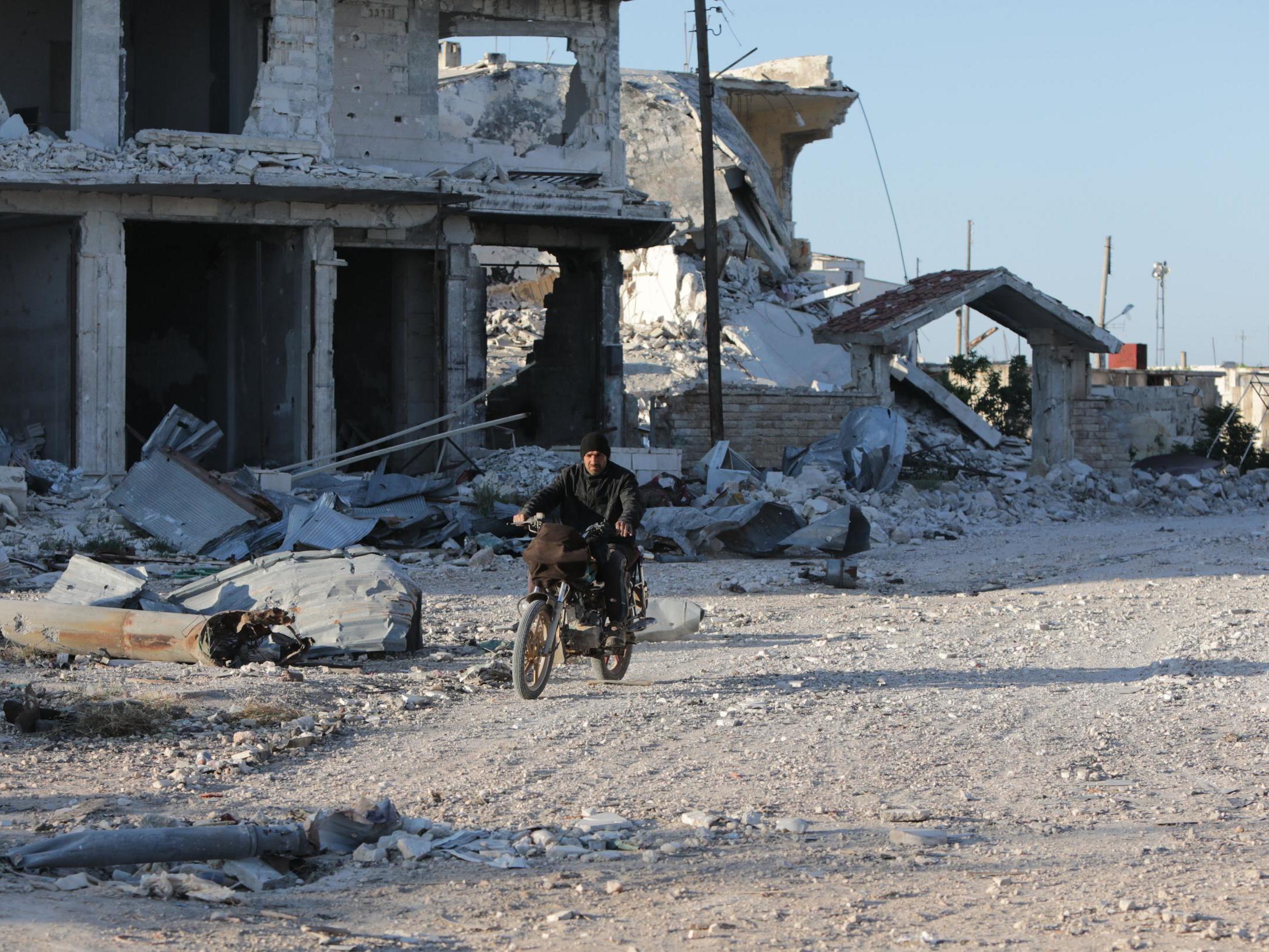Syrians are suffering and need help – here are the three ways politicians can change that
NGOs are treating the humanitarian symptoms of a political crisis. The latest conference is a chance for big decisions to be made, writes Othman Moqbel


Your support helps us to tell the story
From reproductive rights to climate change to Big Tech, The Independent is on the ground when the story is developing. Whether it's investigating the financials of Elon Musk's pro-Trump PAC or producing our latest documentary, 'The A Word', which shines a light on the American women fighting for reproductive rights, we know how important it is to parse out the facts from the messaging.
At such a critical moment in US history, we need reporters on the ground. Your donation allows us to keep sending journalists to speak to both sides of the story.
The Independent is trusted by Americans across the entire political spectrum. And unlike many other quality news outlets, we choose not to lock Americans out of our reporting and analysis with paywalls. We believe quality journalism should be available to everyone, paid for by those who can afford it.
Your support makes all the difference.This time last year, many were hailing the Syrian conflict as entering “the end game.” Since then, the country has been ripped apart by the brutal Idlib campaign which killed thousands and displaced hundreds of thousands more, an economic crisis which has seen the Syrian lira lose 60 per cent of its value in the past month and, like the rest of us, they are also battling the coronavirus pandemic.
Not only is the conflict not "nearly over", the suffering for the Syrian people has no end in sight.
Covid-19 is just another problem for Syrians to try and survive though. Whilst the pandemic presents a natural disaster for Syrians, the roots of their problems are man-made – and they require political solutions.
This is why tomorrow’s Syria: IV Brussels conference on Supporting the Future of Syria and the Region, a joint effort by the UN and EU to address the humanitarian needs of the Syrian people, is so needed. Ministers from around the globe will meet (virtually) to discuss a way forward to alleviate the suffering of the Syrian people. If they are serious about helping the Syrian people, they need to agree to achieve three things:
Firstly, the UN Security Council has until 10 July to renew resolution 2504 – namely the agreement to allow aid to reach more than four million Syrians living in area outside of control of President Bashar al-Assad's control via two border crossings in Northwest Syria. This must be renewed for a 12-month period to avoid a potential humanitarian catastrophe.
When the resolution was last up for renewal in January, the UN Security Council agreed to close al-Yarubiah crossing in Northeast Syria, this had dire consequences. Due to this decision, Northeast Syria is currently struggling to get medical equipment and PPE, despite facing Covid-19, and a dozen healthcare facilities are at risk of closure.
If crossings are closed in Northwest Syria the healthcare system in Idlib and areas of Aleppo, already decimated by the brutality of the conflict, will collapse. NGOs like Syria Relief will try our best to fill the gaps but, inevitably, people will die from disease and hunger.
Secondly, many Syrians are homeless, displaced either within the country or refugees in a foreign land. Many long to return home and reintegrate into Syrian society, yet very few see this as realistically happening in the near future, as a Joint Agency NGO Report pointed out recently.
Those who want to return, but don’t, fear that if they return, they will not be safe, they will have no access to justice, they will be unable to meet their basic needs, such as food and water, and have no access to healthcare, education and all of the other basic services and infrastructure which has been damaged and destroyed by war. Whilst few want to, the majority of Syrians stuck in refugee and Internally Displaced Person (IDP) camps are consigned to living in a state of stateless limbo for what could become the next five or 10 years.
Primarily the Syrian government, but also all other actors who control territory in Syria, must address these concerns, ensure and monitor the safety of returnees, uphold the rule of law and an independent justice system. For this to happen, there needs to be political will. It is beholden of the Ministers in attendance of the conference, many of whom are allies of actors within the conflict, to ensure the incentives are there.
Likewise, they must ensure that international community supports in the rehabilitation of vital services which have been destroyed, from hospitals, to schools and water systems.
Thirdly, we are about to crash head-on into a historic, global recession, this will likely mean many donor governments will be cutting back on humanitarian aid and development budgets. Whilst the UK government are obliged to spend 0.7 per cent of GDP on development, the shrinking economy means this 0.7 per cent will represent a smaller figure than previously.
Humanitarian crises like Syria, Yemen and the DRC need to be safeguarded from budgetary cuts. Commitments need to be made that countries who have endured years of violence and inhumanity do not end up losing out again. More than 80 per cent of Syrians now lives below the poverty line, infrastructure is decimated and they are unprepared for a pandemic which the developed world has struggled to battle. These people have already lost enough.
No matter how many dozens of hospitals we operate, how many hundreds of schools we run, or how many thousands of tonnes of food we distribute, humanitarian aid organisations like Syria Relief cannot solve the suffering of the Syrian people – we can only alleviate it. We are treating the humanitarian symptoms of a political crisis. For the pain to stop, big, political decisions need to be taken. Starting tomorrow.
Join our commenting forum
Join thought-provoking conversations, follow other Independent readers and see their replies
Comments